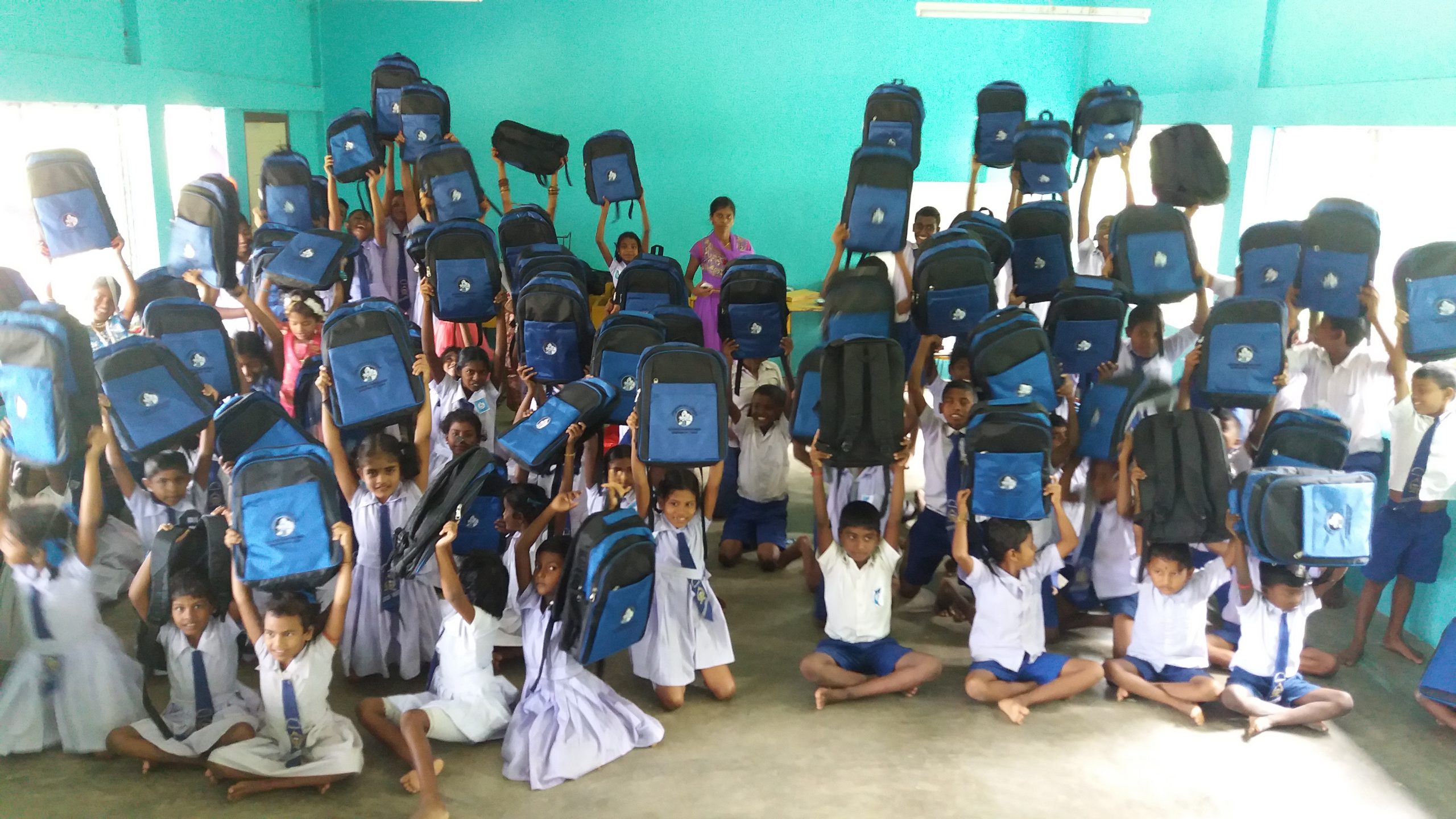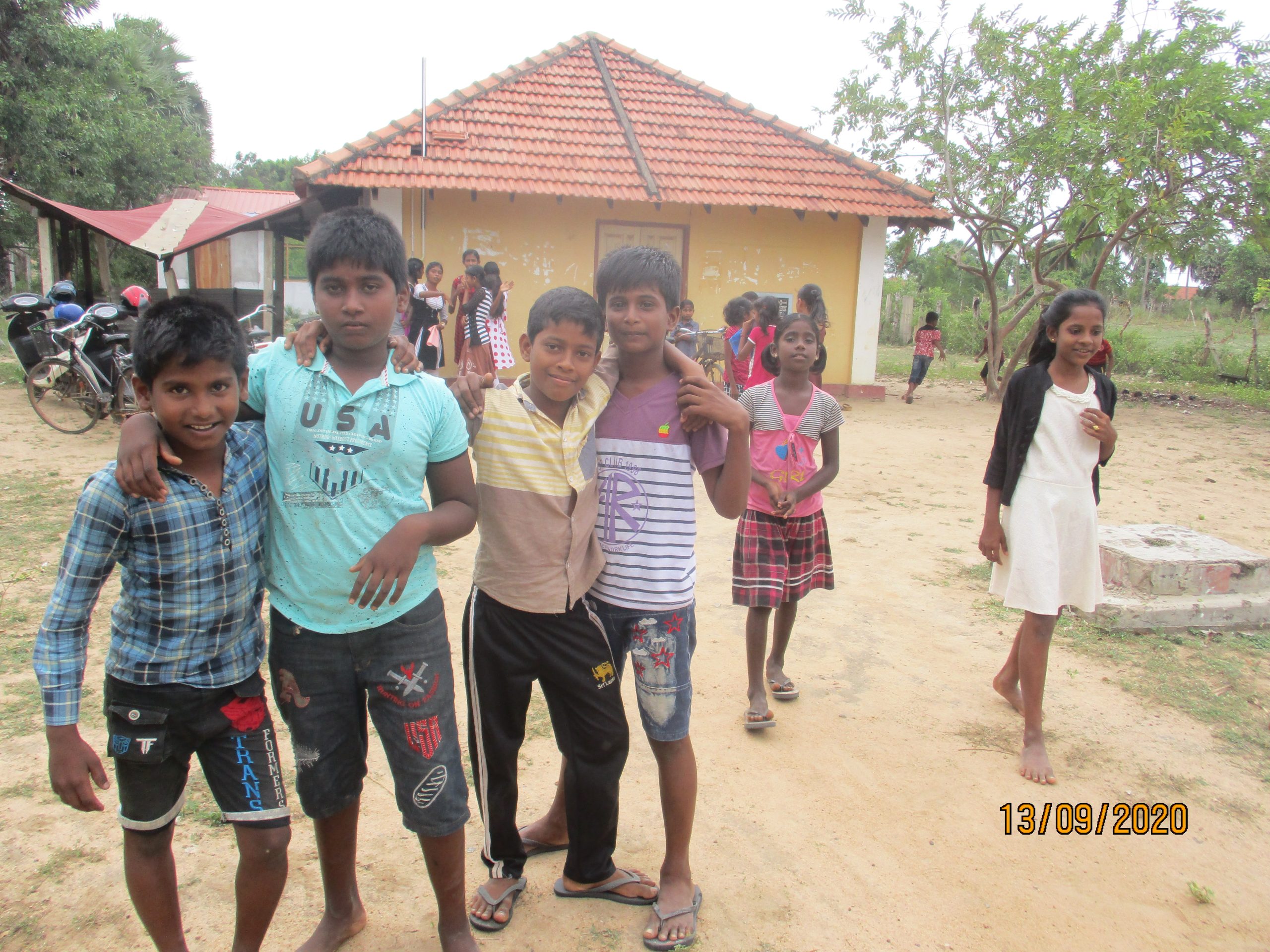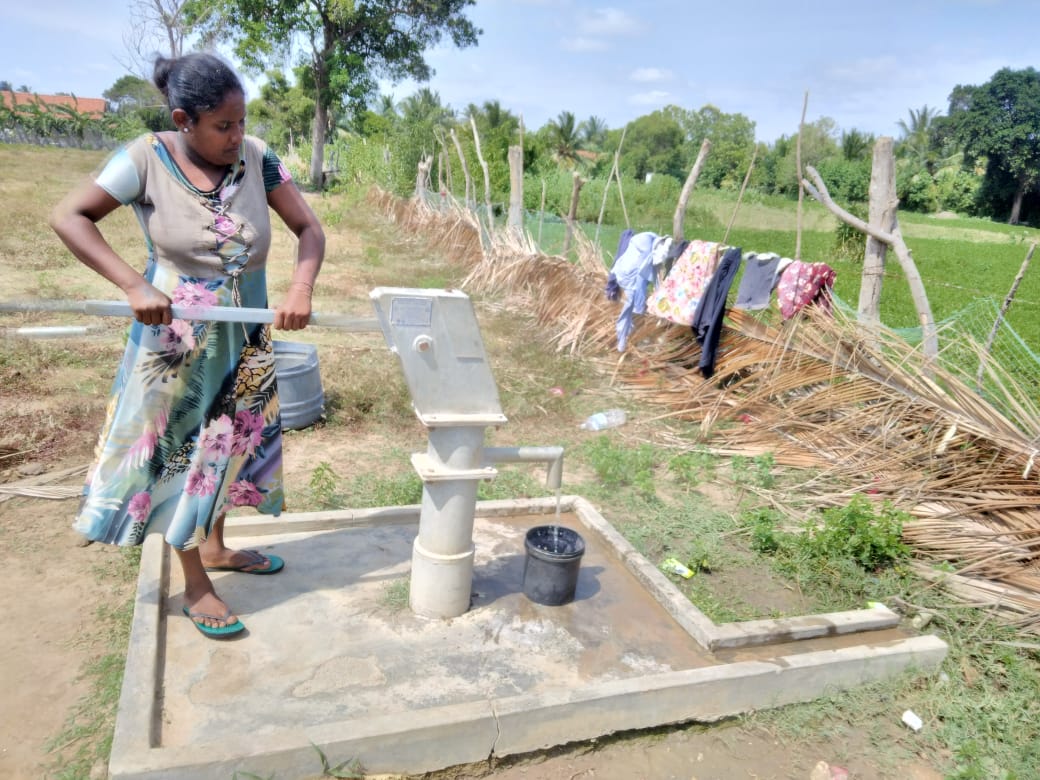For 26 years, the sound of sporadic gunfire and explosions filled the air as a brutal civil war wore on in Sri Lanka. Finally, on May 18, 2009, the conflict ended, marking a new era of peace, reconciliation, and development. But in a small village called Iruttumadu, people were left with the worst scars from the war. The village was largely destroyed, and healing seemed impossible. Many of the villagers were returning after living displaced by the conflict for years. As they resettled their community, these war survivors faced extreme challenges in nearly every area of their lives. Iruttumadu is an isolated village in the northern province of Sri Lanka, and the people there received limited support or assistance from the government or any humanitarian agencies. Dhitri*, a community member, explained that without jobs, they couldn’t rebuild their homes. They lived in temporary housing for years. “In the past, before the final stages of the civil war, it was easy to live here. … After the resettlement, we have nothing,” Dhitri says. “If you could come to help us now, we will learn to help ourselves and you will not need to come and help us again.”
Dhitri’s longing to rebuild is shared by many others in the village. Together with Nazarene Compassionate Ministries Lanka (NCM Lanka), the village launched a five-year project (2017-2022) to assist the community to be independent and self sufficient. This project aimed to restore hope and transform lives through a holistic and sustainable approach that equipped its members and encouraged cooperation to meet their own needs, providing a safe and uplifting environment for future generations. Now, at the culmination of the project, the transformation is clear.
Transformation for Children
For many of the villagers, children were—and are—a priority. With the end of the war, children could grow and thrive in a new, trauma-free environment. They could live without fear. Chandra, a long-time community member, has six children and six grandchildren. During the war, his wife became ill and died because they didn’t have access to a hospital. He and the children stayed in Iruttumadu until the last of the conflict was over, but even then, they were forced to try to find a life elsewhere in Sri Lanka. Away from Iruttumadu, they had to live in a camp for displaced people. Eventually, they returned to the community. Chandra says he hopes that the suffering is over and that his grandchildren will not have the same journey. “We have gone through enough suffering, but my greatest hope is that our children won’t have to go through the same,” Chandra explains.
A child-focused arm of the project opened in the village school with 88 children. Now, after five years, the education of 207 children ranging from grade school to high school has been significantly improved. All 278 village children live in a safer environment, too. To begin, NCM Lanka helped hire five government-certified teachers from the village and trained them in holistic care, which means caring for every aspect of a child’s life. The child-focused program focuses on spiritual, mental, educational, nutritional, and social care. The teachers incorporated non-traditional teaching strategies, such as teaching through games, with traditional methods. This led to a considerable positive impact on each child’s performance. Also, the program ensured that kids could eat healthy meals. Every afternoon, nutritious lunch was served prior to the start of the program. This helped parents immensely.
Before the new project, many children dropped out of school because of the distance they had to travel. NCM Lanka collaborated with Helping Hands and presented 11 bicycles to students to continue their higher education. Today all the 11 students have graduated and have passed down the bicycles to their siblings to continue their schooling.
Besides education, the project also emphasised strengthening and improving safety of children in the village. Trainings and policies were translated into the local language, making it possible for community members to create child-safe spaces and become well-versed in child protection. Then, they could also train and support parents to make sure they had the tools to protect their children.
Hope for the Future
For nearly three decades, the youth of Iruttumadu came of age under the shadow of war. Whether directly involved with the war or impacted by it, they were facing extreme trauma and years of lost education. It was difficult for young people to hold on to hope, ambition, and faith to move forward. Rudra is 28 and has two children—he was married in a refugee camp. He has spent years living through falling shells and the extreme inflation post-war. “Because of the fighting, I couldn’t take my exams, so I have no completed education,”Rudra shared. “And after that, there were no more opportunities to study anything.” There are many stories like Rudra’s.
Sports became a way to both connect, building peace and trust, as well as creating an entry point for developing skills. Young people meet daily on a sports field, playing volleyball or gathering in the evenings. The field used to be dotted with mines; now, it has been reclaimed for a hopeful future thanks to the generosity of one family. Anna was just eight years old when she died in the war. Her father, Kasun, had been saving an acre of land for her; when the war ended, he donated the land to young people. “My daughter is gone,” Kasun explained. “Let other children in the village enjoy what she has left behind.”
The close interaction with the young people that Kasun made possible led to the formation of a youth committee to spearhead youth activities and projects. From this committee came emotional support as well as job skills guidance. Through the connections of NCM Lanka, young people could enroll in vocational training courses. Some of those who trained as electricians were able to give back right away: when lighting cut off power to an NCM Lanka school, they were the first to respond. They are a few of the 75 percent of Iruttumadu young people who have gained the knowledge to be employed.
In the same way, job opportunities were limited for young people, and women were also struggling to find work. Many families were impacted by the war, and many women returned to Iruttumadu as widows. “If you can create job opportunities, these widows could have work and earn money to take care of their families,” Rudra said. Thus came the idea for another arm of the project: something that would give women the chance to unleash their potential. Women, especially widows, were invited to participate in self-help groups. There, they could achieve self-sufficiency, both saving and earning money.
Women in the groups also learned income-generating activities such as home gardening and wormy compost production. The majority of the women found that using wormy compost for their home gardens helped them save money on chemical fertilizers and grow robust, healthy produce. Any excess compost is packed into plastic bags and shared with other farmers in the village. They also started cultivating mahogany trees, which prevent erosion and, once mature, will sell for a good price. Hiruni, age 32, was one of the women who joined. “I am without a husband; after joining the project I learned I can survive on my own,” she shared.
Whole Lives, Healthy Lives
Whole-person care wouldn’t be complete without seeking improved health practice and nutrition. In Iruttumadu, many people drew their water from open-dug wells, which are shallow and susceptible to contamination and disease. As an alternative, new tube wells provided the community members with clean drinking water. Since the consumption of clean and safe water through tube wells, the frequency of children falling sick reduced significantly. Better latrines (or toilets) also reduced illness; together with the nutritional food from the gardens, healthier lives have become the norm. These are just a few of the many relationships and projects that were part of the change in Iruttumadu—the growth of plants, spirits, and relationships expands far beyond those listed here.
Iruttumadu was caught in destruction, and the people who returned got caught in it. However, now, life has sprung up across the community. Young people have found hope for stable futures, and many who struggled with alcoholism were able to overcome it with the help of yet another arm of the program. Gardens overflow with new life—and the community does, too. Gayan, age 36, reflected on the five-year project. “I want my community to become self-sufficient community,” he explained. “Like what NCM did, I hope someday our community will help another village.”
written by Sharon Tigga, NCM Eurasia
published in the NCM Magazine







